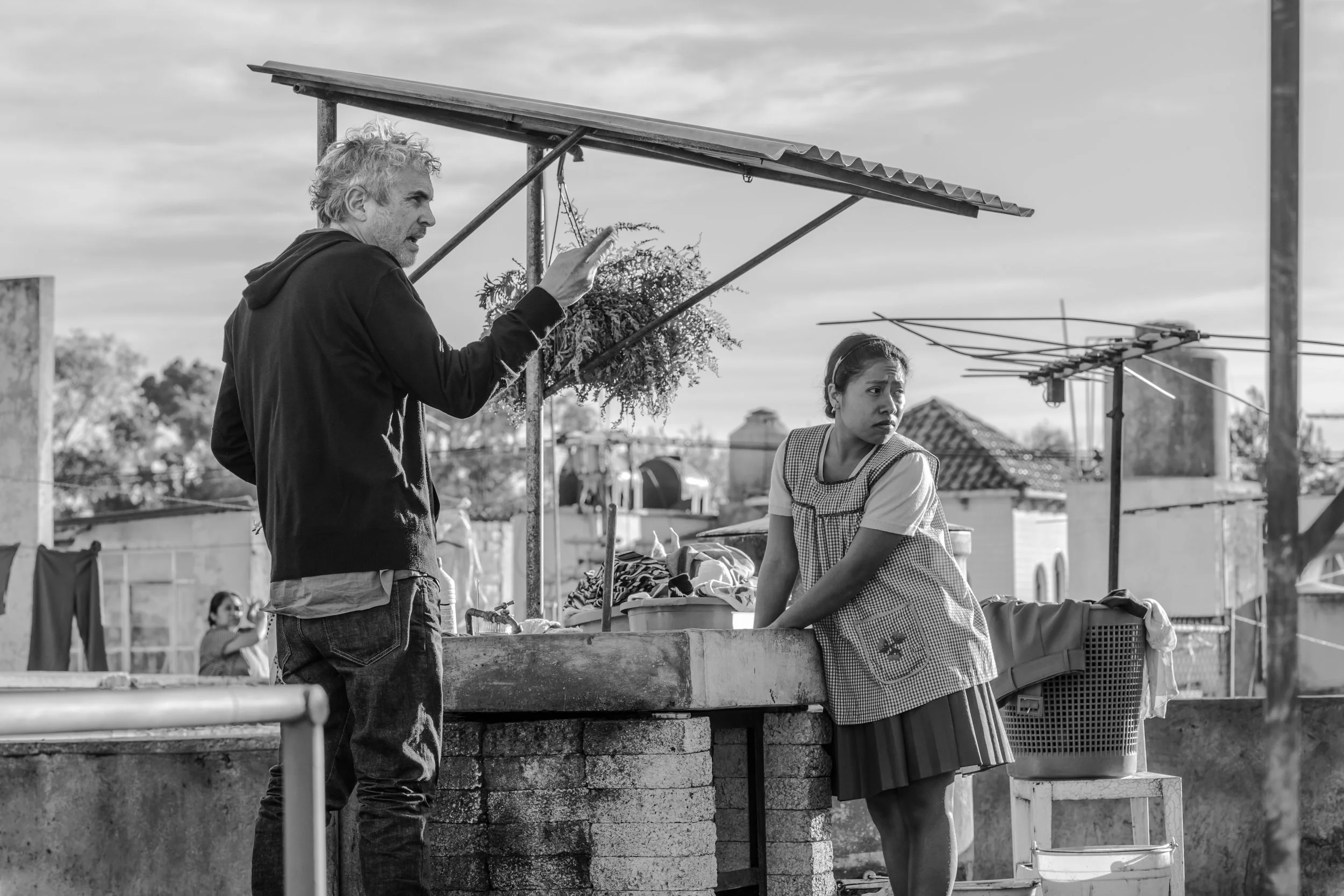Original-Cin Q&A: Roma's off to the races, Alfonso Cuaron talks low expectations and emotional scenes that made him cranky
After a high-in-the-sky previous awards-season run with Gravity, Alfonso Cuarón is back accepting trophies for the far more down-to-earth Roma, now showing on Netflix.
Set in the early-‘70s, and inspired by Cuarón’s own upper-middle-class upbringing in Mexico City, it’s the story of an indigenous maid named Cleo, who carries on through the break-up of her employer family and a pregnancy from an irresponsible, macho self-styled revolutionary.
Our Bonnie Laufer, an unabashed fan of the movie, got a few minutes of the director’s time just prior to his appearance at the Golden Globe Awards, where he won best director and Roma won for best foreign language film.
Alfonso Cuaron and Yalitza Aparicio on the set of Roma
ORIGINAL-CIN: Congratulations on everything. I have to tell you, I’ve now seen the film three times, in the theatre where it should be seen, and I love it more and more with every viewing. What is it about this movie that we are all connecting with?
ALFONSO CUARON: “I have to say this has caught me by surprise, because when I was doing the film I thought I was doing something so specific that I had to do. It was a personal need, but something maybe that I was going to do and move on, because nobody was going to care about it.
“What I’m happily surprised with is the emotional reaction the film has had around the world. It makes me hopeful. It says the human experience is one and the same.
“It is a film about very specific family in a very specific society, in a very specific time in history. But at the end, I think that it is about existence and about something we share as humans.”
OC: “I think you’re right. And because of this reaction, this has to be one of the most joyous times for you as a filmmaker.
CUARÓN: What is really, really, amazing is it gives me hope for diversity. One of things that makes me so happy is the celebration of Yalitza (Aparicio), our lead - an indigenous woman from Oaxaca who’s embraced and celebrated around the world.
“But also the diversity in cinema. As a filmmaker, it’s so exciting to think that audiences are ready and prepared to explore different ways of appreciating cinema.
“There shouldn’t only be one model of diversity. But for mainstream audiences to embrace a film, that is a Mexican film, in Spanish and (the indigenous language) Mixteco, in black and white….
“It’s very reassuring about the possibilities we have as filmmakers. Audiences are way, way smarter and more sophisticated than sometimes they are given credit for. And I’m basing that on the mainstream product (they are usually offered).
OC: When you were shooting this film, it was so close and personal. Was there ever a day you had to walk away from a scene and say, “I’ll get back to this in an hour.”
CUARÓN: “Yeah, that definitely happened. But it was really strange, because it was not a conscious situation. I wouldn’t necessarily get emotional because I would be looking at something and I’d recognize something from my life. You’re directing and so focused, so you’re not always aware of those things.
“I’d just get very cranky without any reason. And the tendency was to look around and see what was going wrong with the set. And I’d see that nothing was wrong and everybody was doing a great job.
“And then I realized, ‘Oh, I’m shooting the scene in which my father leaves my family.’ So, it was not a conscious, emotional response. Most of the time it was unconscious, very subconscious.”
OC: Well, It’s a beautiful film. I hope people get an opportunity to see it on the big screen. Make lots of room in your house for awards.
CUARÓN: “Thank you so much for your support, it’s been amazing.”

